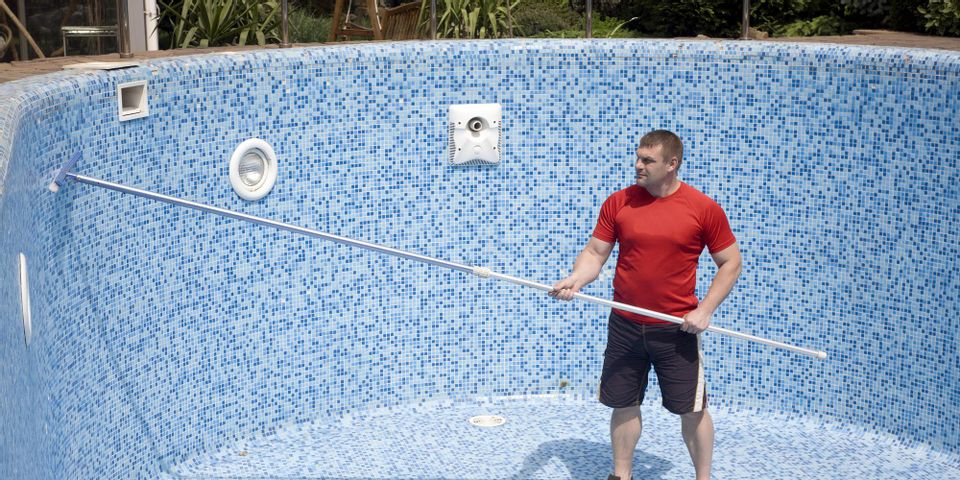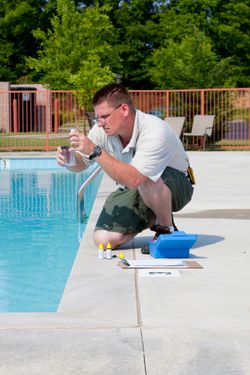Why You Should Remove Calcium Deposits From Your Pool

Swimming pools are a wonderful way to keep cool, but they also require a lot of maintenance. Constantly cleaning out debris, sweeping, and vacuuming are just a few of the weekly tasks you must complete in order to keep your pool clean and well maintained. Even if you are a responsible pool owner, you may be susceptible to calcium deposits in your swimming pools. Below, find out what these deposits are and how you can rid them from your pool.
What Are Calcium Deposits?
Calcium deposits can form in a pool for a number of reasons. High pH, high alkalinity, high calcium concentration, constant temperature changes, and hard water can all cause calcium deposits. Usually, a combination of these elements causes small deposits of calcium to form in your pool, which can either be stain-like or crusty. Either way, most pool owners should remove them to increase pool safety.
Why Should You Remove Calcium Deposits?
 Calcium deposits are not only displeasing to the eye, but they can also cause unwanted damage to your swimming pool. They can cause your pool’s filters to clog since filters are only meant to deal with bugs, leaves, and debris. They can also cause damage to your pool’s plaster and will need to be refinished or resurfaced. Calcium deposits can also irritate your swimmer’s eyes and skin.
Calcium deposits are not only displeasing to the eye, but they can also cause unwanted damage to your swimming pool. They can cause your pool’s filters to clog since filters are only meant to deal with bugs, leaves, and debris. They can also cause damage to your pool’s plaster and will need to be refinished or resurfaced. Calcium deposits can also irritate your swimmer’s eyes and skin.
How Can You Remove Them?
The optimal calcium level of a swimming pool is between 200 to 400 ppm. In order to reach this level, you can drain and refill your pool while adjusting the alkalinity and keeping your chlorine levels at 2 to 3 ppm. Next, you’ll need to adjust your pH levels to the optimal level. Now, you can start to remove the calcium deposits by using a number of different methods. You can use baking soda, vinegar, or dish soap to scrub and remove the deposits, or use an acid-free calcium cleaner.
How Do You Prevent Buildup?
You can apply a calcium blocker to your pool’s tiles and glass. This will help maintain the life of your pool. You can also monitor and adjust your pool’s pH levels as needed. Use a pool cover to prevent evaporation from occurring because as water levels lower, calcium becomes more concentrated and builds up.
If you need help cleaning up calcium deposits from your swimming pool, or if you need further assistance on preventing these deposits, reach out to the professional team at Pool Pro in Kihei, Hi. They’ve been helping customers create and maintain their dream pools since 1985. From pool maintenance to custom pool design, their team does it all. Their CPO-certified and licensed technicians will even help you correct your chemical levels after installation. Learn more about the services they offer online or call (808) 879-3294 to schedule an appointment with their team.About the Business
Have a question? Ask the experts!
Send your question

